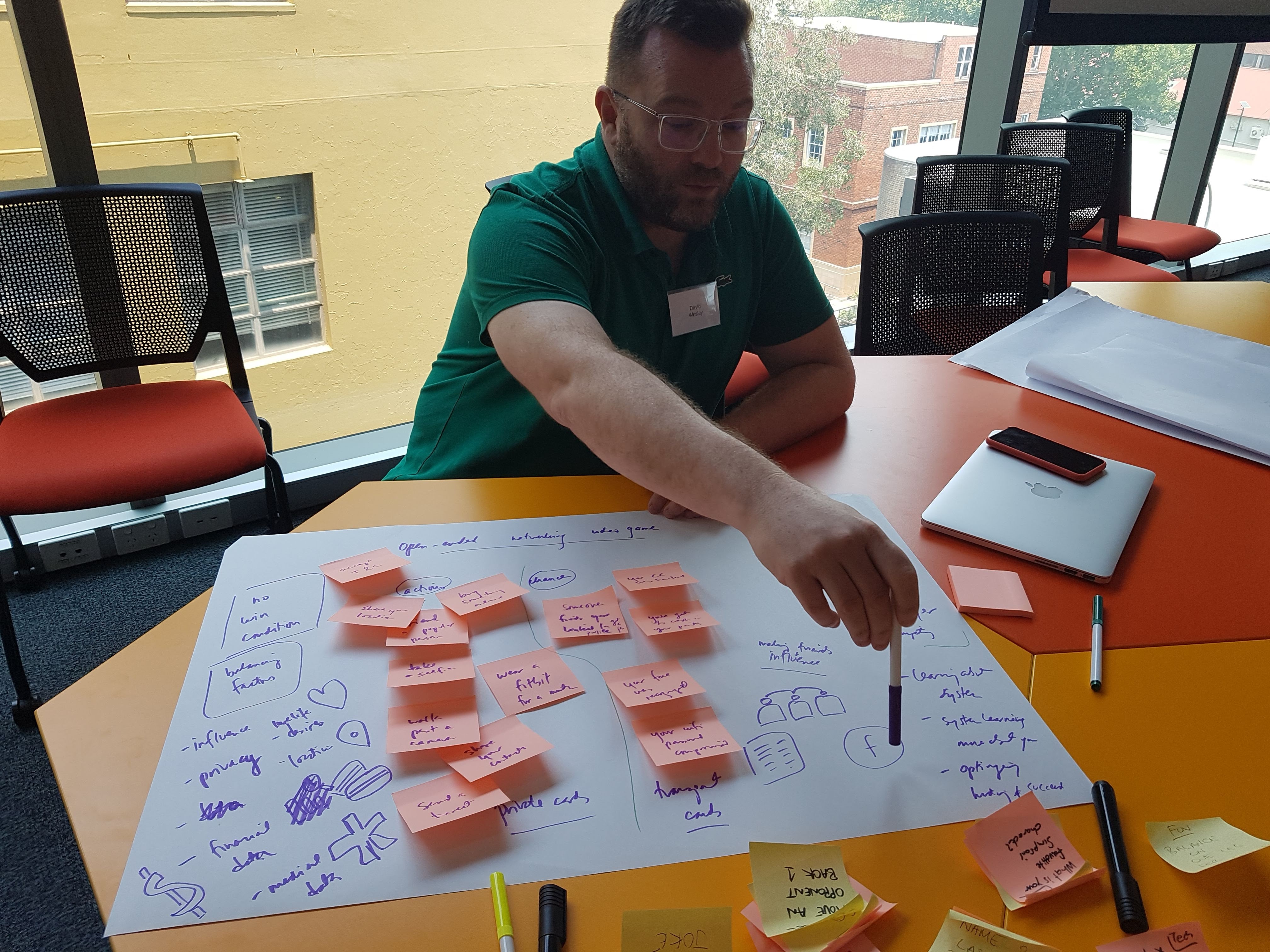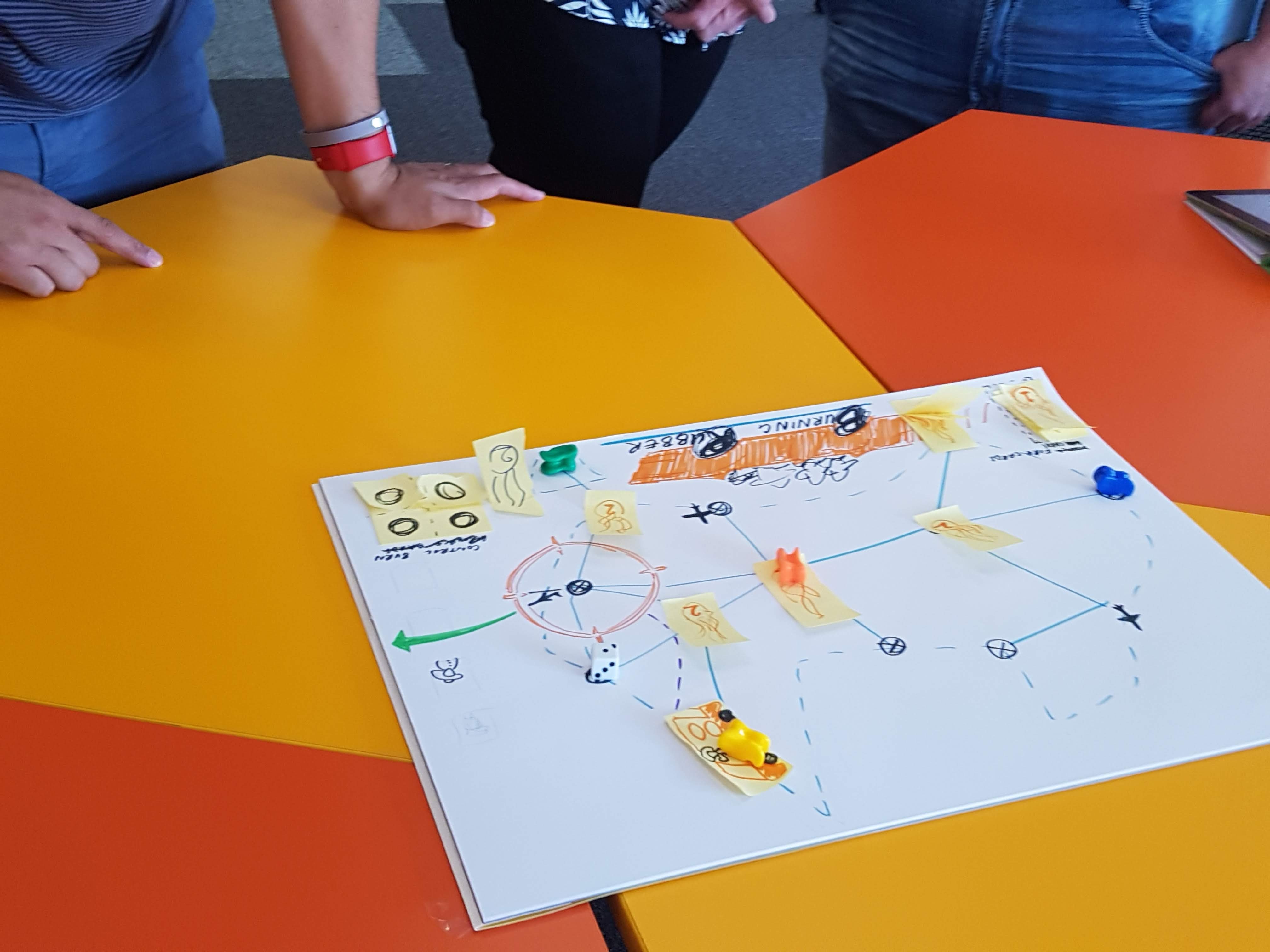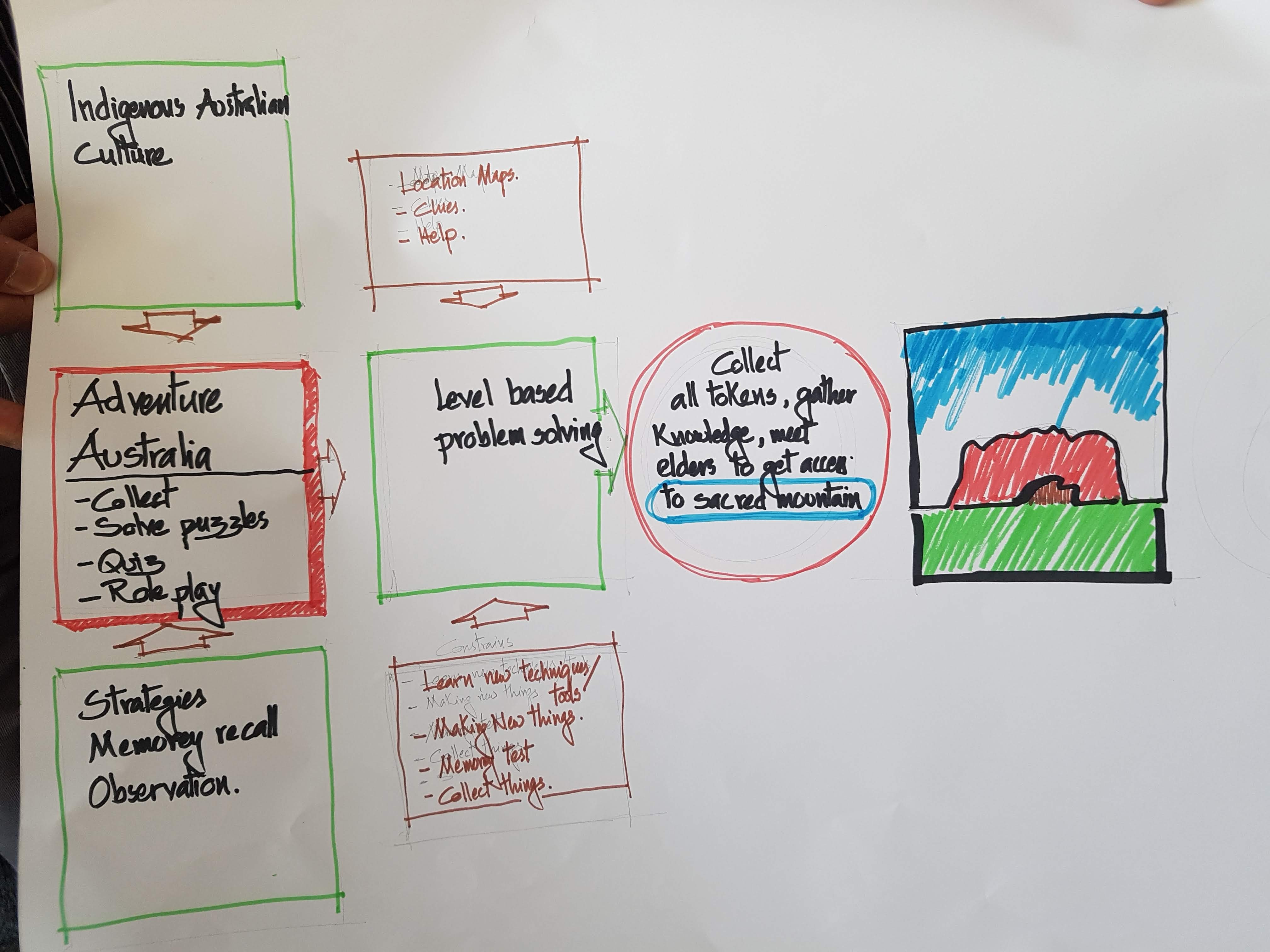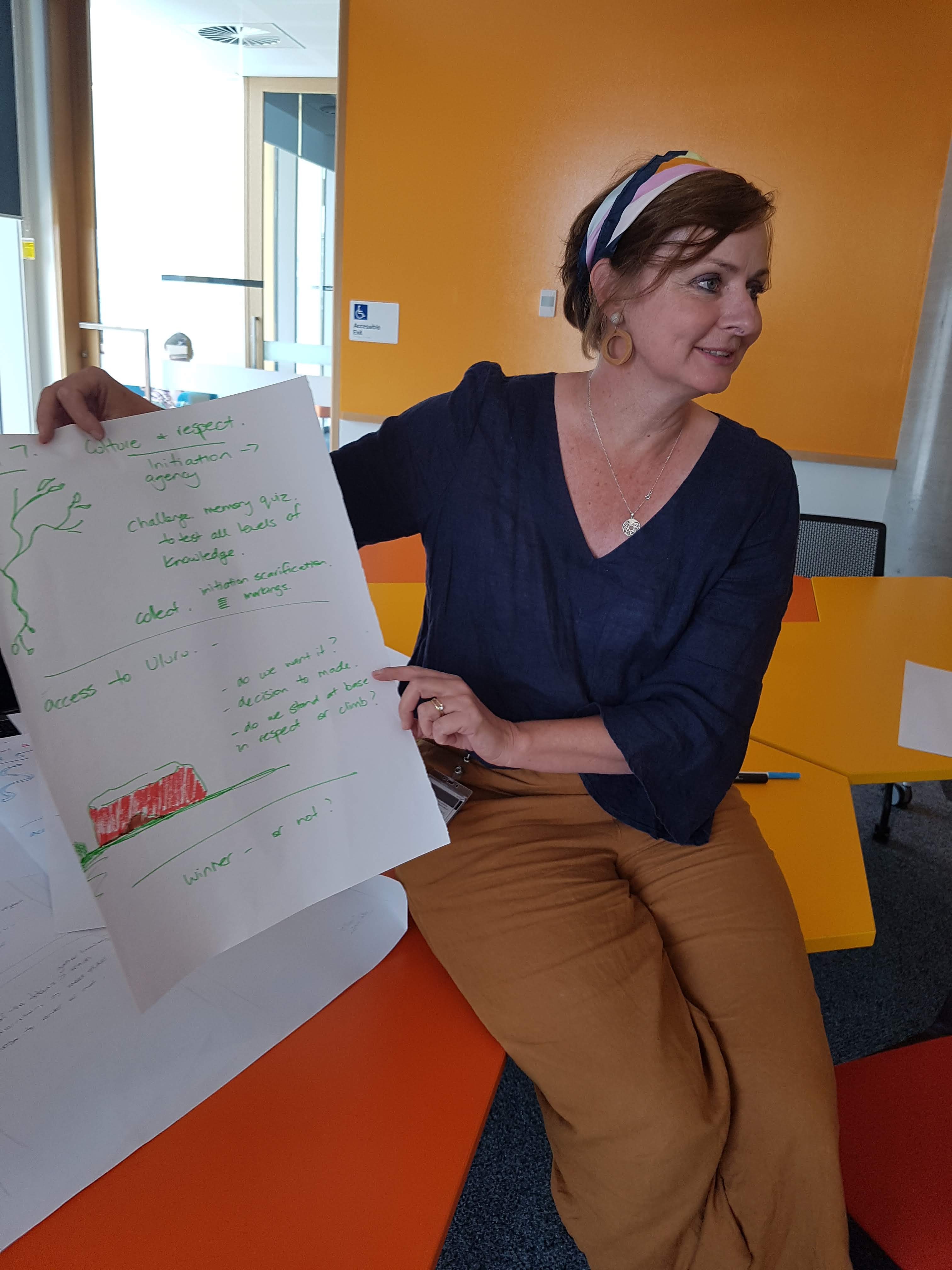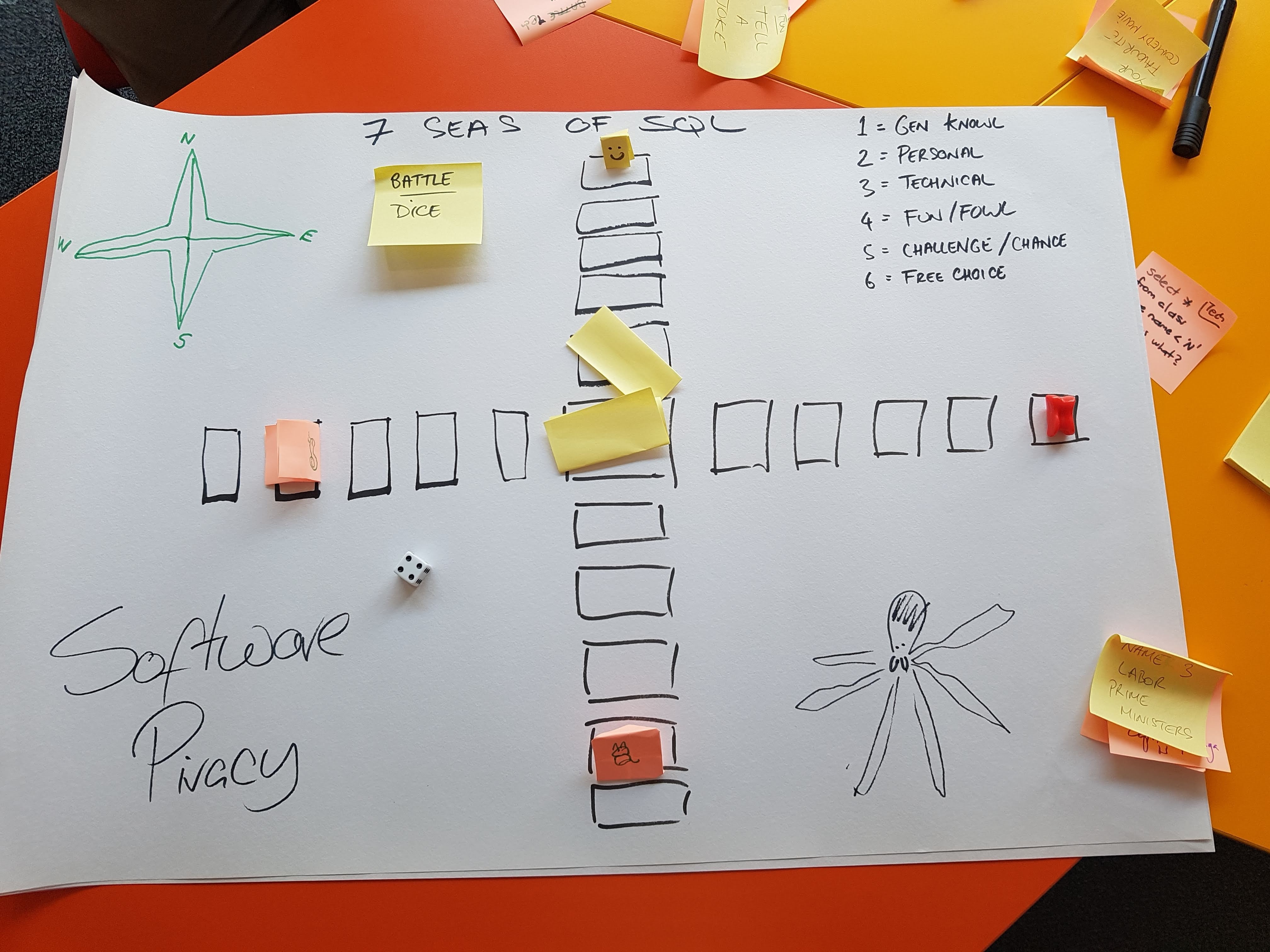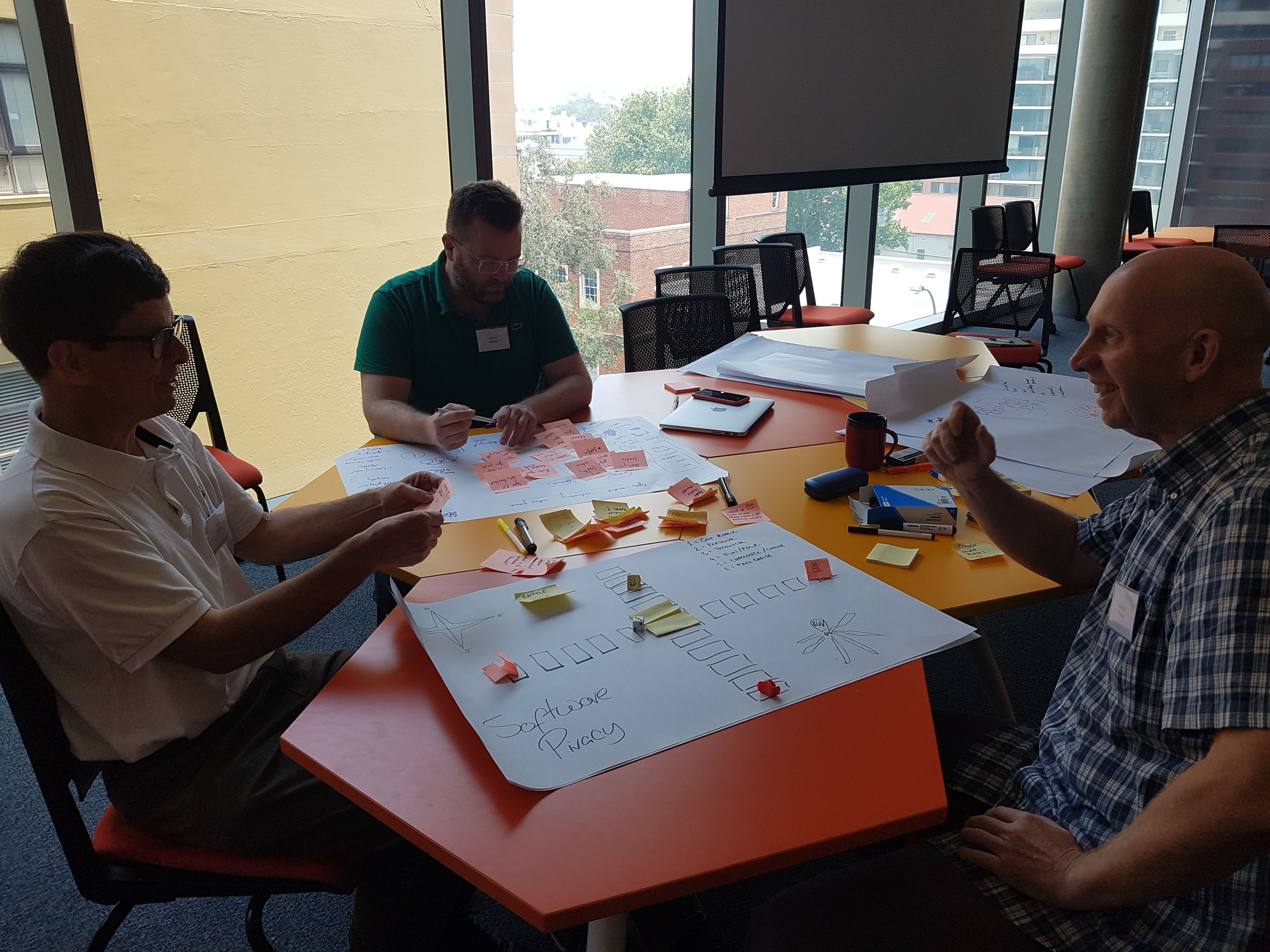“Workshopping Board Games for Space, Place, and Culture” revised chapter, authored with Juan Hiriart, for “Playing Place” (edited by Medina Lasansky and Chad Randl, MIT Press) sent off today. Each chapter has a 1000 word limit, I believe. Took me some time to trim this! Great to work with Juan on a chapter, I think our different strengths blend well. When (or if?) the book appears on MIT Press I will add another post, the list of authors and topics looks really good, possibly essential reading if you are into boardgames, or are not, but want to know why so many people are …
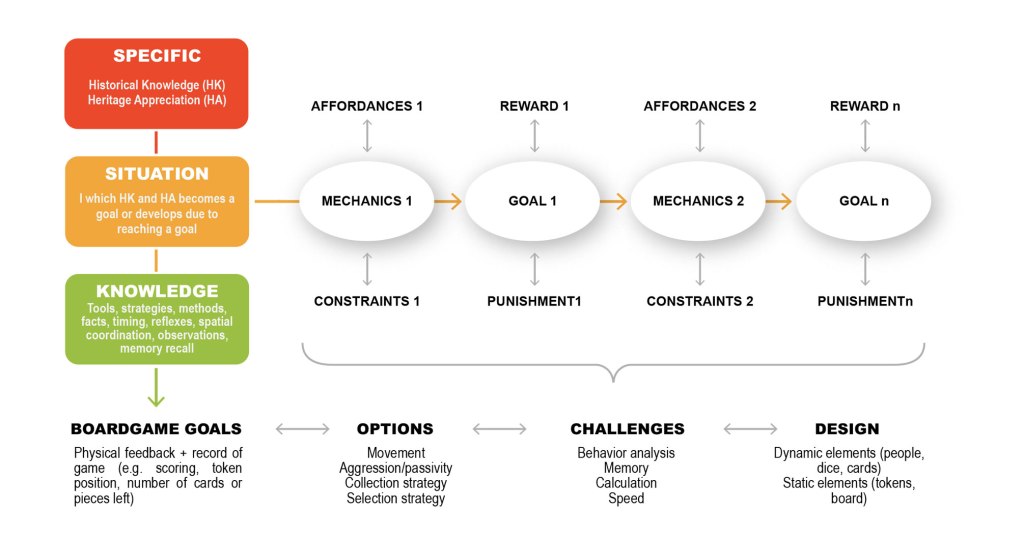
Workshopping Board Games for Space, Place, and Culture
Conveying built heritage values and historical knowledge through boardgame design may seem an odd decision. Communicating space, place, and culture through play is a challenge let alone through a medium inherently incapable of evoking the direct experience of inhabitation and architecture as a spatial art. Boardgames are engaging, social, quick to make, and fast to learn, intuitive or nuanced. From the complex to the spontaneous, boardgames can be effective, visceral tools for cultural immersion, challenging cultural assumptions and preconceptions, encouraging discussion and collaboration between players, provoking insight and enjoyment with simple props or intricate rules.
The following explains our experience hosting participative design workshops with historians, archaeologists, and heritage professionals. In small groups of three to four people, participants determine the design decisions, discussing and solving problems that often arise in an iterative process where historical research, game design, and play-testing both blend and butt heads.


